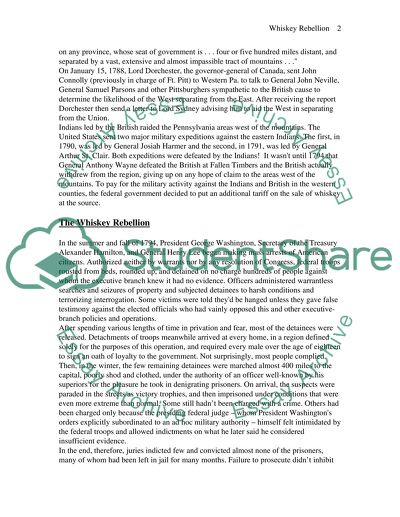Cite this document
(“The Whiskey Rebellion Essay Example | Topics and Well Written Essays - 1750 words”, n.d.)
The Whiskey Rebellion Essay Example | Topics and Well Written Essays - 1750 words. Retrieved from https://studentshare.org/miscellaneous/1511004-the-whiskey-rebellion
The Whiskey Rebellion Essay Example | Topics and Well Written Essays - 1750 words. Retrieved from https://studentshare.org/miscellaneous/1511004-the-whiskey-rebellion
(The Whiskey Rebellion Essay Example | Topics and Well Written Essays - 1750 Words)
The Whiskey Rebellion Essay Example | Topics and Well Written Essays - 1750 Words. https://studentshare.org/miscellaneous/1511004-the-whiskey-rebellion.
The Whiskey Rebellion Essay Example | Topics and Well Written Essays - 1750 Words. https://studentshare.org/miscellaneous/1511004-the-whiskey-rebellion.
“The Whiskey Rebellion Essay Example | Topics and Well Written Essays - 1750 Words”, n.d. https://studentshare.org/miscellaneous/1511004-the-whiskey-rebellion.


